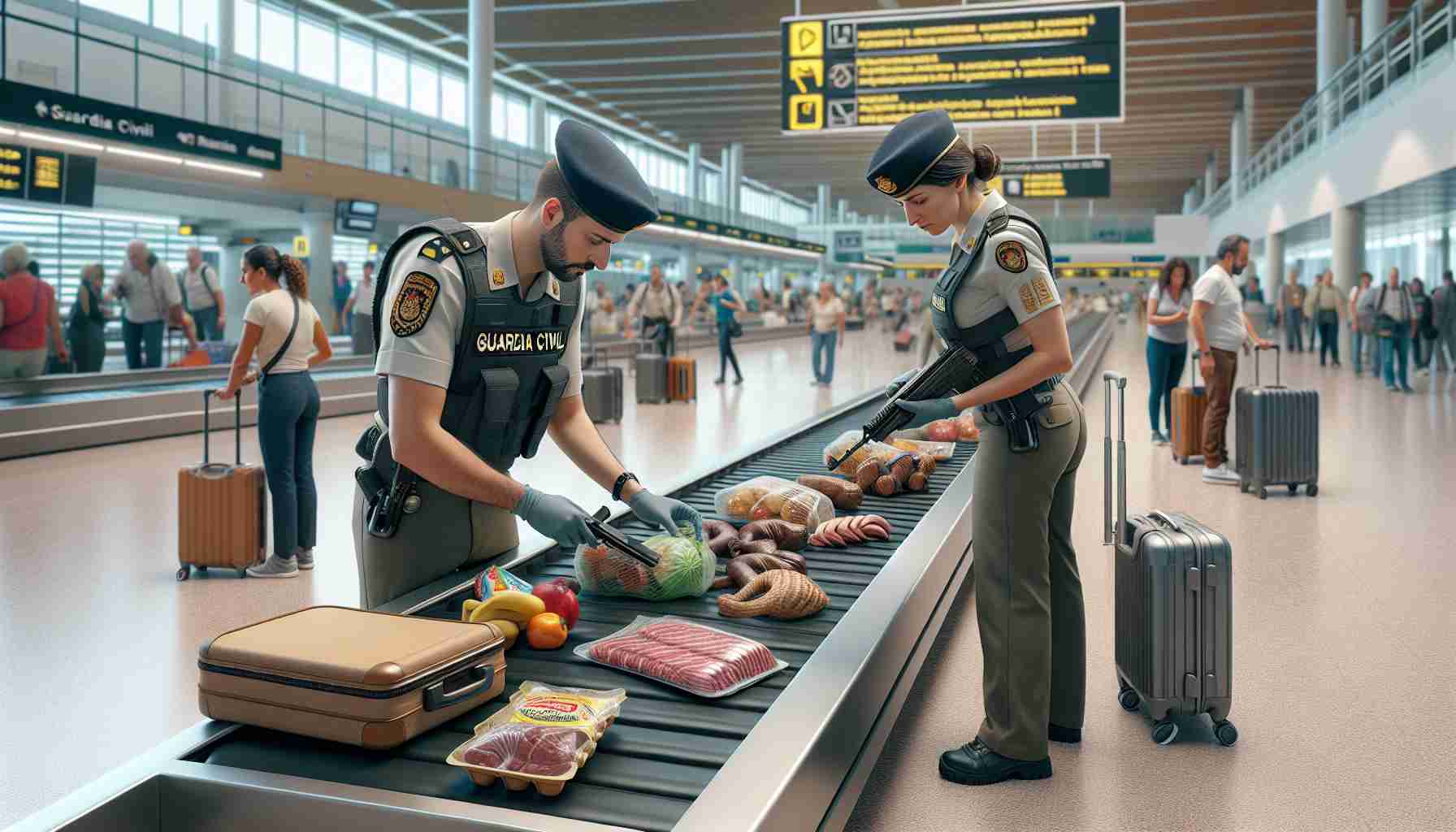
Guardia Civil Seizes Illegal Food Products at Tenerife Airport
Authorities at Tenerife Norte-Ciudad de la Laguna’s airport recently uncovered an operation involving the smuggling of unauthorized food products. On a routine check, agents from the Fiscal and Borders Section of the Guardia Civil intercepted two individuals suspected of engaging in illegal activities related to public health. The passengers were attempting to transport a range of food items, including meats, dairy, and seafood, lacking the necessary health clearances into the European Union.
Upon x-ray scanning the luggage, law enforcement officials found a significant quantity of items that violated EU regulations. The passengers, unable to provide any proof of sanitary control, likely intended to distribute these goods in retail establishments across Santa Cruz de Tenerife. In response to the breach, the authorities promptly confiscated the items for disposal.
This incident underscores the importance of stringent health regulations and the vigilant efforts of enforcement agencies to safeguard public well-being. The interception of these unauthorized food products emphasizes the ongoing need for robust monitoring and control measures to prevent potentially harmful goods from entering the market.
Guardia Civil Seizes Illegal Food Products at Tenerife Airport: Uncovering More Insights
A recent operation at Tenerife Norte-Ciudad de la Laguna’s airport led to the discovery of an illicit scheme involving the smuggling of unauthorized food products. While the previous article highlighted the interception of individuals transporting items lacking health clearances into the EU, further details shed light on the scope of the incident.
Key Questions:
1. What specific types of unauthorized food products were seized?
2. Were there any underlying motives or connections to organized crime?
3. How do such instances impact the local economy and consumer safety?
Agents conducting a thorough inspection unearthed various food items, including fruits and vegetables, delicacies, and packaged goods, hidden within the passengers’ belongings. It was revealed that the individuals had meticulously concealed the products to evade detection, indicating a well-planned operation beyond a mere smuggling attempt.
Challenges:
One major challenge faced by enforcement agencies in such cases is the constant evolution of methods employed by smugglers to circumvent regulations. As technology advances, illicit actors adapt, making it harder to detect unauthorized goods. Additionally, the interconnected nature of global trade poses a challenge in tracking the origins of illegal products and enforcing regulations effectively.
Advantages:
The swift response by the Guardia Civil in confiscating the illegal food items showcases the effectiveness of proactive monitoring and enforcement. By preventing these goods from entering the market, authorities protect consumers from potential health risks and maintain the integrity of the food supply chain. Furthermore, such operations serve as a deterrent to would-be smugglers, signaling that illicit activities will not go unpunished.
Disadvantages:
However, the prevalence of illicit food smuggling highlights underlying vulnerabilities in security and border control measures. The sophistication of such operations calls for continuous improvement in detection technologies and training for law enforcement personnel. Moreover, the interconnected nature of the EU market poses a challenge in maintaining consistent surveillance across various entry points.
In conclusion, the recent seizure of illegal food products at Tenerife Airport underscores the complex nature of combating food smuggling and the critical role of enforcement agencies in upholding public health standards. Continued collaboration between authorities and relevant stakeholders is essential to address the challenges posed by illicit activities in the food sector.
For more information on food safety and border control measures, visit Guardia Civil.